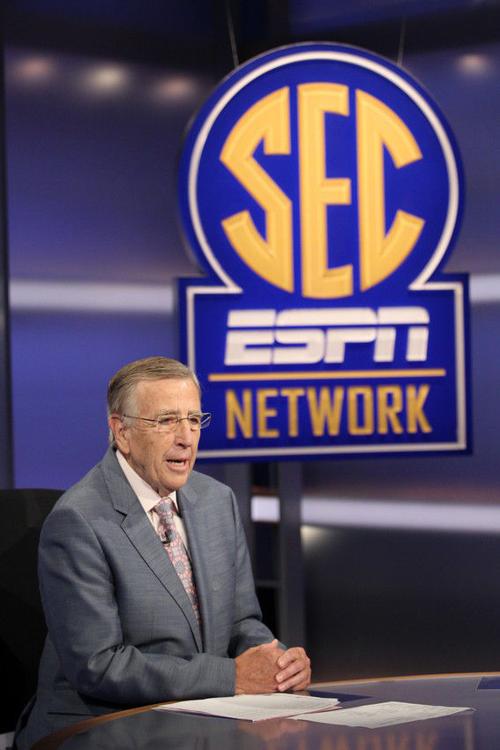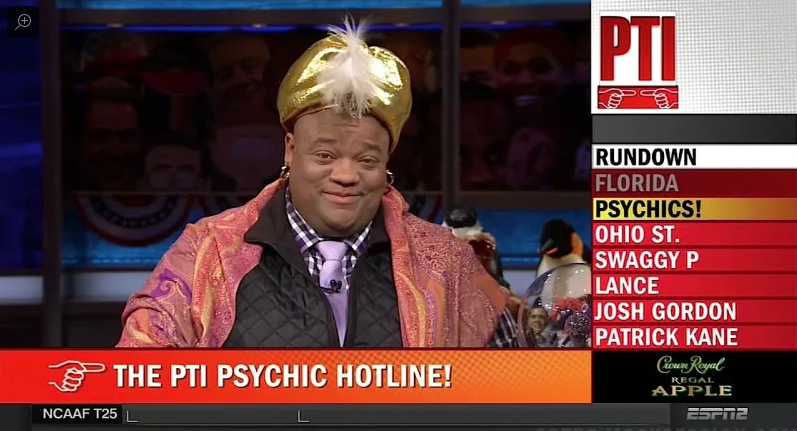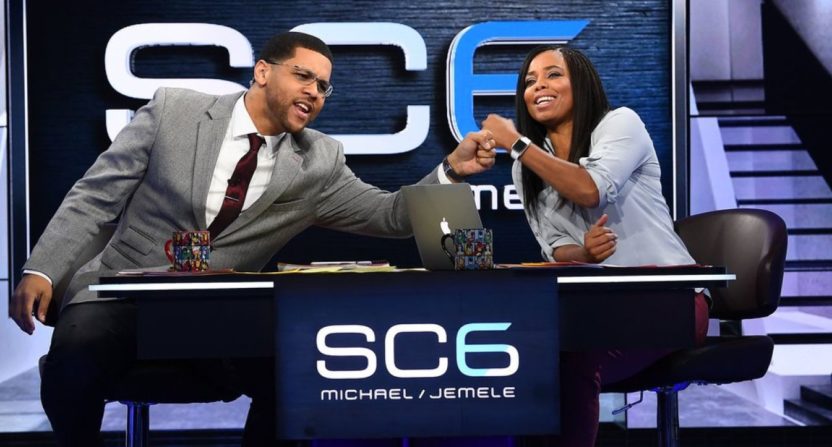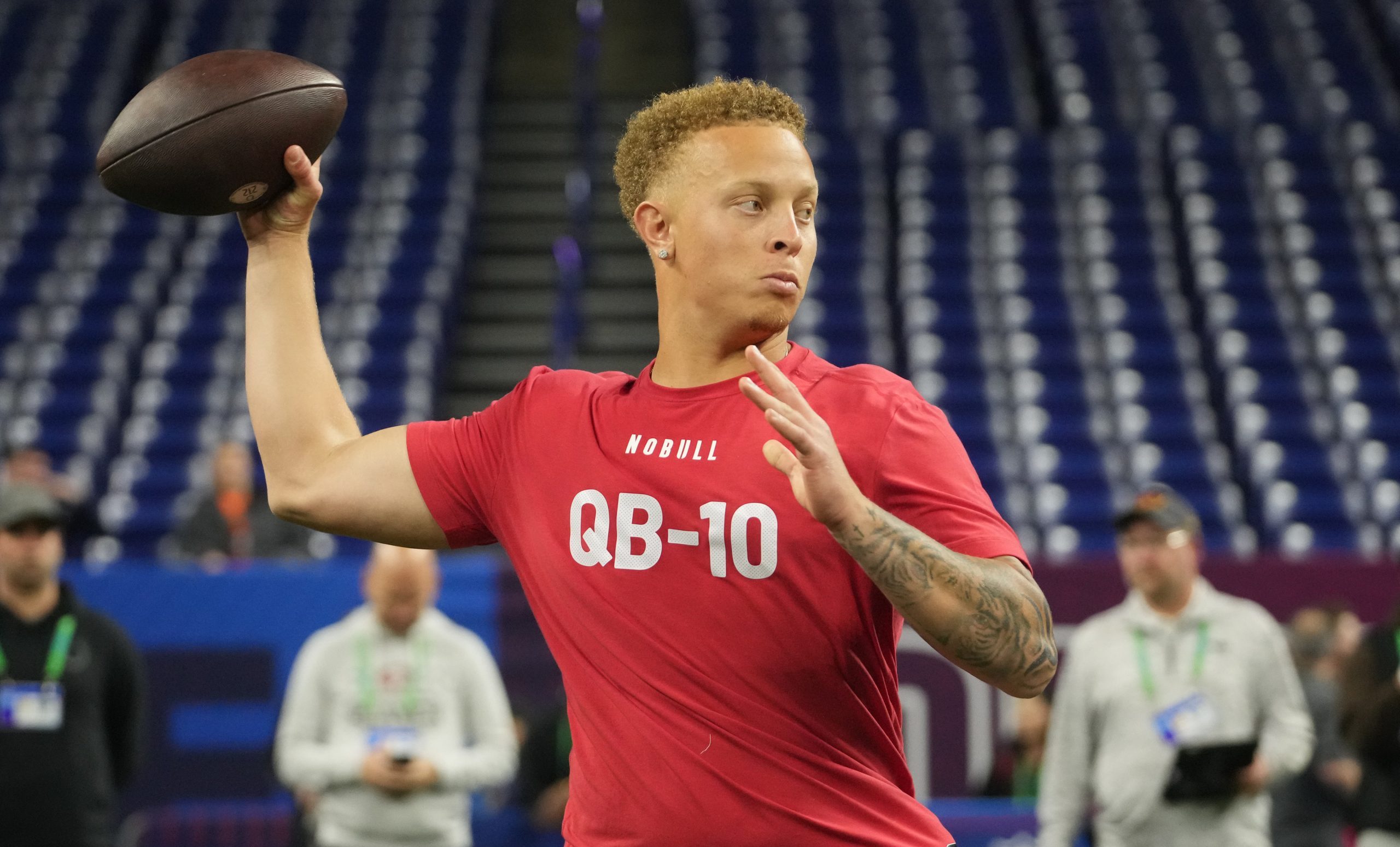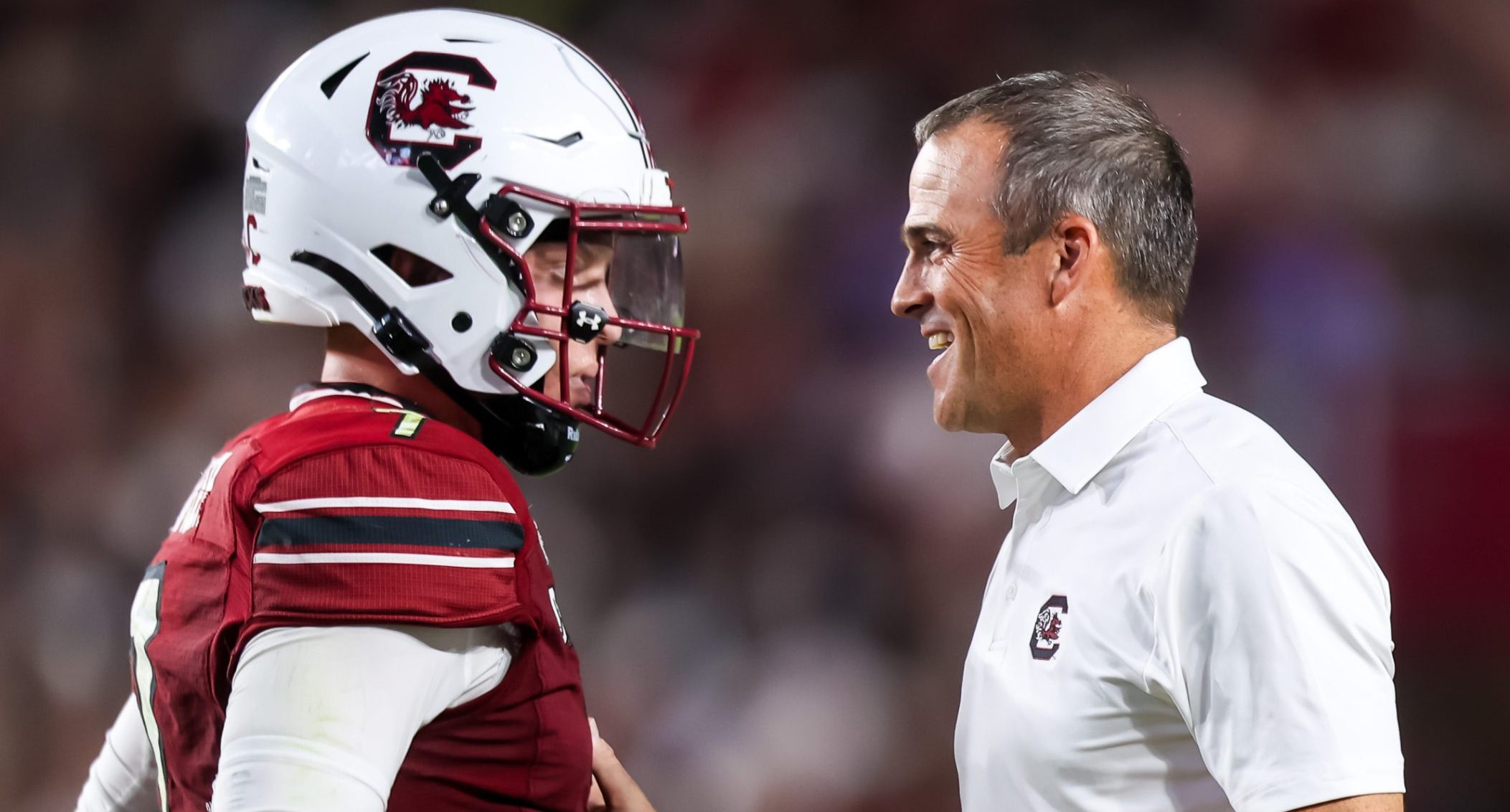One particularly unusual thing with ESPN relative to many other companies is that when they make a change with a prominent employee, it’s very rarely an outright firing. When we covered Curt Schilling’s public firing in 2016 (following anti-trans comments and a doubling down on them), there were only seven other outright firings of under-contract on-air talent that we could find, most for quite serious and/or embarrassing offenses. There have been some since, but not many; more common approaches to on-air change from ESPN including not renewing contracts when they come up, or reassigning under-contract talent elsewhere until their contract runs out.
And the reassignment move is particularly notable for its implications on media coverage. Because the reassigned employee’s still under contract and still has another role at the company, it means they’re usually not immediately criticizing the move to the press (the way some fired or not brought back employees have been), and it means the stories on whoever’s replacing the reassigned person also include something on their new role (even if the new role is sometimes the equivalent of being sent to a farm upstate). The most recent case of this is Jessica Mendoza, who’s been taken off the high-profile Sunday Night Baseball but put in a new “expanded role” with a number of lower-profile assignments. But she’s far from the only one this has happened with. Here’s a look at some of the most prominent reassignments ESPN has done over the years (other companies have done this too at times, but ESPN has done a whole lot of this), in chronological order of when the reassignment happened. (This is not an exhaustive list, but only some of the most notable ones.)
Ron Jaworski: The Jaworski move bears some of the most similarities to the Mendoza move, as he was also on one of the network’s most prominent broadcasts and then was reassigned elsewhere. Jaworski served as a Monday Night Football game analyst from 2006-2011 (alongside Tony Kornheiser for the first two years, then alongside Jon Gruden, with Mike Tirico calling play-by-play all those years). In 2012, ESPN dialed that booth back to just Tirico and Gruden, but signed Jaworski to an extension where he’d have a “greater year-round presence” (across a variety of lower-profile studio shows; he did get some of his own SportsCenter specials, but he never was on anything as high-profile as MNF again). Jaworski was then caught in the April 2017 layoffs, even though his contract ran through 2022, and while there were some discussions that ESPN wanted to bring him back, that didn’t happen.
As for Kornheiser, he also went from Monday Night Football and Pardon The Interruption back to just Pardon The Interruption after the 2008 season, but he cited a fear of flying. And his long-time Washington Post colleague Leonard Shapiro found that believable, writing “This time, I’m going to pull the plug on my Skeptic Meter and take his explanation at total face value. I worked with the man for more than 30 years and know full well about his flying phobia, which seemed to get worse every time he downed a couple of scotches and who knows what else to make himself get on an airplane. …A mutual friend also told me Monday that he had spoken to Tony recently and said he already was dreading the prospect of flying the unfriendly skies, nearly three months before he’d have to head to the airport for the first telecast of the year in August.” So that’s maybe Kornheiser actually wanting out rather than ESPN wanting to replace him with Gruden, but only the people close to that decision really know for sure. For now, he doesn’t make this list, but Jaworski certainly does.
Brent Musburger: After almost two decades at CBS, Musburger joined ABC and ESPN in 1990, and he called many of the biggest college football games for them, including seven national championships (2000, 2004, 2010, 2011, 2012, 2013, and 2014). In 2006, he was named the initial announcer for the new Saturday Night Football on ABC primetime package, and he held that role through the 2013 season. But the 2013 national championship game saw some controversy around his remarks on A.J. McCarron’s then-girlfriend Katherine Webb, and there were some other unusual moments during the following season, including his famous interview with Eminem. And his contract was up; ESPN signed him to a new deal for the 2014 season, but not to keep doing Saturday Night Football (which went to Chris Fowler instead), instead moving him to be the lead announcer on the new SEC Network.
Then-ESPN executive John Wildhack (now the Syracuse AD) really tried hard to spin that move in a release, saying “Serving as the definitive play-by-play voice for this major network launch represents an exciting new chapter in his legendary career and reinforces our commitment and investment in the SEC Network,” but it was a clear demotion for Musburger (especially with him no longer assigned to playoff games). And while Musburger took it in stride, he did express some disappointment about losing the playoff games in particular. Many fans were pretty disappointed he was generally relegated to less-prominent games (although he did still get some big ones from time to time, including the 2014 Iron Bowl on ESPN). Musburger then created some more controversy with his 2017 Sugar Bowl comments on Joe Mixon and his doubling down, and he retired from ESPN later in January 2017 to launch the Vegas Sports and Information Network. He’s still doing that, and in 2018, he also became the radio voice of the Oakland Raiders, a position he still holds (and which will get easier following their move to Vegas). But ESPN shifting him from “lead CFB announcer” to “lead SEC Network announcer” was certainly a demotion, despite their spin efforts.
Mark May: May joined ESPN in 2001 and was featured on a variety of platforms, most notably College Football Final from 2001-2014. Rece Davis hosted the show during that span, and Trev Alberts was another analyst for the first few years, but the show became really prominent when Lou Holtz joined ESPN in 2005 and replaced Alberts. In 2015, ESPN shook up that program, bringing in Adnan Virk as host (in place of Rece Davis, who had hosted from 2001-2014 but was jumping up to host College GameDay) and Danny Kanell and Joey Galloway as analysts. Holtz announced before the 2014 season that he was retiring at the end of the year to “practice my golf a little more,” and he did just that, leaving at 78, so he doesn’t really count here. But May certainly does.
May was taken off College Football Final after the 2014 season to overwhelming joy, especially from the Ohio State fans he consistently trolled. And while that was spun as setting him up with new shows (particularly the ABC studio one with John Saunders and Mack Brown), those were generally in lower-profile slots. And when he did receive some prominence, it didn’t go well. May was then caught in the April 2017 layoffs. (Interestingly enough, 2018 saw May reunite with Holtz for a series of The Crowd’s Line videos, which they’re still doing, and which are still drawing very low numbers on YouTube.)
Jason Whitlock: Perhaps the biggest example of reassignment-as-demotion comes with Whitlock, who first worked for ESPN from 2002-06, then returned there in 2013. At that time, he told Bill Simmons “I’m going to be doing a Black Grantland at ESPN.” That wound up being The Undefeated (a name announced in February 2015, alongside a launch date of summer 2015). Nothing at all appeared to happen with the site for most of Whitlock’s first year back at ESPN, but the site did make a few hires over the last few months of 2014. In April 2015, though, Deadspin’s Greg Howard published a devastating and thoroughly-reported piece on Whitlock’s mismanagement of the site (although Whitlock would later insist “they made up stuff“), and in June 2015, ESPN pulled an all-time spin of a demotion with the following statement on Whitlock:
As we continue to move forward in the process of creating The Undefeated – a new ESPN site focusing on race and sports – we have collectively decided to make some structural adjustments that will maximize the skill sets and strengths of our team, leading to the best possible output for the site and for all of ESPN. To that end, Jason Whitlock will now be entirely focused on what he does best: creating distinctive and compelling content, which will live across various ESPN platforms. Jason’s thought-provoking perspective has always been a hallmark of his work and this will allow him to completely devote his time and energy to that. As a result, he will make significant contributions to multiple ESPN entities and programs. Since returning to ESPN, Jason has been instrumental in assembling the foundation of a strong editorial team, formulating the vision for the project and collaborating with our digital product team to develop the blueprint for the site.
Leon Carter – an experienced leader in journalism who officially joined the site in January after leading staffs at the New York Daily News and ESPNNewYork.com – will assume all day-to-day management of the site’s editorial processes and personnel on an interim basis.
Whitlock didn’t create much more “distinctive and compelling content” for ESPN after that. He occasionally showed up on studio shows for the next month, but created some embarrassing headlines along the way, and then did the same on Twitter. In July 2015, we opined that he was the ESPN version of “Bighead” from Silicon Valley, someone you pay not to work and not to get in the way. He wound up negotiating an early exit from ESPN to rejoin Fox, a move that became official in October 2015.
John Kruk and Curt Schilling: Kruk joined ESPN in 2004 as a Baseball Tonight analyst, then joined Sunday Night Baseball in 2013, replacing Terry Francona (who had returned to MLB to manage the Cleveland Indians). Schilling joined ESPN in 2010 and joined Sunday Night Baseball in 2014, although he didn’t work many telecasts that year thanks to ongoing cancer treatment. In August 2015, Schilling was suspended for tweeting a meme comparing the percentage of Muslim extremists to the percentage of Germans who were Nazis, and was replaced with Mendoza to a lot of initial praise and to suggestions that that move should be permanent. Schilling wound up suspended for the rest of the season, with Mendoza replacing him on the remaining SNB telecasts.
In January 2016, ESPN announced a new SNB team with carryover play-by-play man Dan Shulman, but with Mendoza and Aaron Boone as new analysts; Schilling was shifted to the lower-profile Monday Night Baseball, “a weekly, nationally-televised MLB platform – which showcases the best teams, matchups and players from around the league,” (yeah, but not as “best” as the Sunday ones!), while Kruk returned to Baseball Tonight , where he would “reprise his role as a full-time Baseball Tonight studio analyst, a role in which he served from 2004 through 2012, before transitioning to game analysis.” Two demotions for the price of one. Schilling never made it to Monday Night Baseball, as he was fired that April for making and defending anti-trans comments. Kruk and ESPN “mutually agreed” to end their relationship at the end of 2016, with Kruk then joining CSN Philadelphia as a game analyst.
Mike Ditka: Ditka first joined ESPN in 2004, working on Monday Quarterback, NFL Live, Monday Night Countdown, and SportsCenter. He joined the main Sunday NFL Countdown show in 2006 and appeared there through 2015, creating some controversies and notable moments along the way. In early 2016, Ditka started getting very political with criticisms of President Obama and stumping for Donald Trump: not long after that (although it’s unclear if there’s a direct correlation), he was replaced by Matt Hasselbeck on Sunday NFL Countdown, but signed a two-year extension as a “SportsCenter contributor.” And boy, did they try to spin that:
“This new role is really a blessing,” Ditka said. “It’s something I asked for. After many years of weekend travel, I’m thrilled I’ll get to watch NFL games on Sundays and Monday nights in the comfort of my own home. I enjoy being part of the game and part of ESPN. I really do. So this is a great solution.”
Added Seth Markman, ESPN’s senior coordinating producer, NFL studio shows: “Mike talked with me late in the year about his role for next season. Thankfully we were able to come to an agreement that works for him and keeps him a part of our ESPN family. This announcement is great news for us and for our viewers, as Coach Ditka continues to be someone NFL fans everywhere respect and admire.”
Yes, it’s possible this really was initiated by Ditka wanting to work less; he was 76 at the time. But this was an incredible demotion, and Ditka sure wasn’t seen too frequently on studio shows after that; the main notable things about him after that were his comments bashing Colin Kaepernick and Obama, both in external radio shows. He then was caught in the April 2017 layoffs. So even if this was a Ditka-initiated demotion, it was definitely a demotion, and one that led to him leaving ESPN shortly afterwards.
Jemele Hill and Michael Smith: Both Smith and Hill had long runs with ESPN, from 2004-2019 and 2006-2018 respectively. The notable art of the demotion part came around SC6, the 6 p.m. SportsCenter variant; they were announced as hosting that in late 2016, and it was heavily hyped up ahead of its February 2017 launch. But Hill wound up in a national controversy in the fall of 2017 with her tweets about President Donald Trump as “a white supremacist who has largely surrounded himself w/ other white supremacists” and “an unfit, bigoted, incompetent moron”; ESPN disavowed those, but didn’t officially punish her then (although they did reportedly try to pull her off air, but other black hosts refused to fill in); they did suspend her for two weeks later for a tweet suggesting fans unhappy with the Cowboys could boycott the team’s sponsors, leading to Smith sitting out one day of SC6 and then hosting it solo.
The art of the demotion part came later, first in January 2018, where Hill left SC6 to join The Undefeated “because of a strong desire to return to reporting, writing, and commentary” (that may all be true, but it was very clear at that point that ESPN was not supporting Hill, Smith and SC6), then in March when Smith left SC6 for “other projects” and it was remade as “Yet Another Non-Controversial SportsCenter” with Sage Steele and Kevin Negandhi, something ESPN then turned the full weight of their promo machine on. ESPN and Hill reached a buyout agreement in the fall of 2018, and she joined The Atlantic. Smith really didn’t get many “other projects” (apart from occasional guest hosting on various shows), and he reached a buyout agreement with ESPN last October.
Michelle Beadle: Beadle first joined ESPN in 2009, then left for NBC in 2012. She returned to ESPN in March 2014, and it’s that second stint that came with a notable art of the demotion. Beadle was part of ESPN’s high-profile launch of Get Up in April 2018, with ESPN even moving NBA Countdown to Bristol and then New York City so she could do that as well, but she left the show in August 2018 (following criticism for her comments about how she doesn’t watch football any longer because of leagues’ handling of violence against women). That saw her sign an extension with ESPN to “focus on the NBA” and continue with Countdown (which was moved back to Los Angeles as a result) and new post-game show After The Buzzer (which was with the Countdown cast), though; here’s the key part of that release:
As a result of the launch of NBA After The Buzzer and the NBA Countdown move, Michelle Beadle has extended her contract with ESPN and will return to Los Angeles to focus on the NBA. She will no longer serve as a host of the ESPN weekday morning show Get Up! and her last show will be Aug. 29. Beadle is entering her third season as the host of NBA Countdown along with analysts Jalen Rose, Chauncey Billups and Paul Pierce. She will also continue to host NBA studio coverage on Christmas, and throughout the NBA Playoffs and the NBA Finals.
“We are extremely excited to launch ESPN’s first ever NBA post-game show,” said Connor Schell, ESPN executive vice president, content. “We’re doubling down on our NBA studio content at a time when the NBA is red-hot and fan interest continues to surge, and we are doing it with Michelle, as she is so important to our coverage. As the basketball world looks to L.A. with renewed interest, we’ll be right there to cover it.”
As with some of these other moves, some of this may have been what Beadle wanted, but it was certainly a lower-profile collection of roles than what she was previously doing with Get Up (especially as she was already handling Countdown duties there as well). Eventually, she wound up being replaced on Countdown ahead of the 2019-20 season and negotiating a buyout with ESPN.


